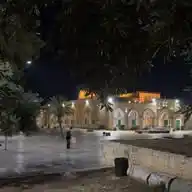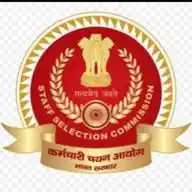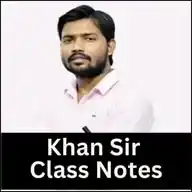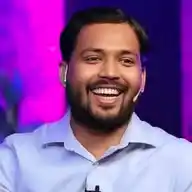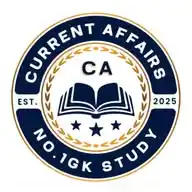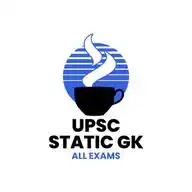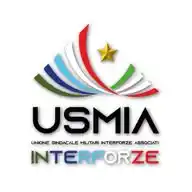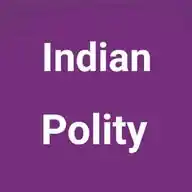
UPSC Indian Polity Prelims Mains Notes UPSC Polity Polity UPSC Constitution Polity MCQs Quiz Pyqs
32.2K subscribers
About UPSC Indian Polity Prelims Mains Notes UPSC Polity Polity UPSC Constitution Polity MCQs Quiz Pyqs
Welcome to UPSC IAS IPS State PCS Civil Services UPSC History Geography Polity Economics Economy UPSC PSIR Essay Ethics Sociolog UPSC Constitution Political Science Politics Maths Biology Physics UPSC National International Relations Anthropology art and Culture UPSC Environment Ecology Chemistry Mapping IR Security Society Science & Technology UPSC CSAT Law Judicial Services India Bharat Pib Daily News Lok Sabha Rajya Sabha News UPSC Short Revision Magazine Notes Interview Optional Subjects Free Topic Wise Mock Test Series UPSC Prelims Mains MCQs Quiz Pyqs DM SDM Sir Mam Samanya Hindi Vyakaran Learn English Grammar Vocabulary Speaking Spoken Government Schemes Jobs Yojana Kurukshetra Static GK GS UGC NET IIT Jam JRF PHD UPPCS UPPSC UP PCS J UP PCS RO ARO UP Police SI BPSC MPPSC MPPCS MPSC UKPSC WBPSC RPSC RAS OPSC JPSC GPSC HPSC RPSC KPSC CGPSC HPPSC HPSC TNPSC APPSC Delhi Students Police SI ASI SSC CGL Banking IBPS Po Reasoning Intersting Aibe NCERT Books Neet Doctor Patwari Railway Sarkari Nokari Rojgar Result Reet UP CBSE Board Tet CTET Super Tet PET RBI Lower Upper PCS Tricks Topic Wise Clat Exam Guide Computer Group D Rrb Rrc Alp NTPC Uttar Pradesh Bihar Madhya Pradesh Haryana Uttarakhand Andhra Pradesh Sikkim Tripura Assam Manipur Goa Jammu and Kashmir Ladakh Kerala Rajasthan Gujarat Himachal Pradesh Punjab MBA UG PG Epfo World CAPF CPO Stenographer LDC BDO VDO CSIR MBBS AIIMS Scientist Clark NABARD SEBI ISRO DRDO Exams Current Affairs UPSC Class Notes Batch PDF PDFs Download Hindu Indian Defence Airforce Navy Army Motivational Suvichar Quotes Education Assistant Professor JNU DU University Constable Teacher Crack UPSC Officer Foundation Course Dream UPSC Target Mindmaps Upsssc Mentorship Gyan Update Law Commission India Reports High Court HC Supreme Court SC News Judge Case Law Today Judgement Handwritten Hand Written General knowledge Online Study Material Point UPSC Mission Topper Paper Civics Syllabus Academy Institute UPSC Operation Sindoor Line of Control Loc Budget Media Organization Portal Jobs
Similar Channels
Swipe to see more
Posts

*🛡️Council of Ministers in states* ♟️In a Parliamentary form of government, the council of ministers headed by the Chief Minister is the executive authority. ♟️The states under the Indian constitution are organised on the pattern as that of the centre. ♟️The Council of Ministers in the state is a replica of the council of Ministers at the centre. ♟️They resemble in formation, function and role in the administration. ♟️The constitution provides a broad and general view of the principles of Parliamentary system of Government in Article 163 and Article 164 . ♟️Council of ministers are there to aid and advise the Governor of the state in various matters.

*🛡️What is Judicial Review?* ♟️Judicial review is the power of the judiciary to examine the constitutionality of legislative enactments and executive orders of both the Central and State governments. ♟️The doctrine of judicial review originated and developed in the USA. ♟️It was propounded for the first time in the famous case of Marbury V. Madison (1803) by John Marshall, the then chief justice of the American Supreme Court. ♟️The Judicial Review has been classified into three categories: ♟️Judicial review of constitutional amendments. ♟️Judicial review of legislation of the Parliament and State Legislatures and subordinate legislations. ♟️Judicial review of administrative action of the Union and State and authorities under the state.

*🛡️Directive Principles Of State policy DPSP* ♟️The constitution of India aims to establish not only political democracy but also socioeconomic justice to the people to establish a welfare state. ♟️These provisions are given in Part IV of Indian Constitution. ♟️Directive Principles of state policy are in the form of instructions to the governments at the centre as well as states. ♟️Though these principles are non justiciable, they are fundamental in the governance of the country. ♟️The idea of the Directive Principles of State Policy has been taken from the Irish Republic . ♟️The Directive Principles of State policy were incorporated in our constitution in order to provide economic justice and to avoid concentration of wealth in the hands of few people. ♟️The constitution covers from Article 36 to 51 as Directive Principles of State Policy. ♟️They are unique blend of socialistic, liberal, democratic and Gandhian Principles. ♟️They describe as the ‘conscience of the constitution’. ♟️In the “State of Tamil Nadu etc. Vs L.Abu Kavur Bai” case in 1984 , the Supreme court held that although directive principles of State Policy are not enforceable, yet the court should not avoid them.

*🛡️GOVERNMENT OF INDIA ACT 1919* ♟️It relaxed the central control over the provinces by demarcating and separating the central and provincial subjects. ♟️The central and provincial legislatures were authorised to make laws on their respective list of subjects. However, the structure of government continued to be centralised and unitary. ♟️It further divided the provincial subjects into two parts– transferred and reserved. ♟️The transferred subjects were to be administered by the Governor with the aid of Ministers responsible to the legislative council. The reserved subjects, were to be administered by the Governor and his executive council without being responsible to the legislative council. This dual scheme of governance was known as ‘dyarchy'.

Geography https://whatsapp.com/channel/0029Vb68ftVJ93wUy1ZoXz2g History https://whatsapp.com/channel/0029Vb5sbOy0G0XiyxWaNe0h Polity https://whatsapp.com/channel/0029VbAZTc30wajwTEStVC1s Ethics https://whatsapp.com/channel/0029Vb6Wx8wBA1f3AWJDjq1k Essay https://whatsapp.com/channel/0029Vb6VDX8FSAt8h3fqKJ2O Art and Culture https://whatsapp.com/channel/0029Vb5fCaS2phHJqTvikJ2H International Relations https://whatsapp.com/channel/0029Vb6YJ0RHltYF8fsIpQ3t Environment Ecology https://whatsapp.com/channel/0029VbBG812GehENd8kXeI2o Science & Technology https://whatsapp.com/channel/0029VbAsiwl9sBI0dYtud42d ECONOMICS https://whatsapp.com/channel/0029VbBS71AAjPXUMeEEHu3A Indian Constitution https://whatsapp.com/channel/0029VbB13w9Fy72GmQPA1023 *Join 👆*

*UPSC* https://whatsapp.com/channel/0029Va95wLz1Xqua3dJy0L27 *Judicial Services* https://whatsapp.com/channel/0029Va4Kw1972WTv8QxTPr0M *UPSC Geography* https://whatsapp.com/channel/0029Va9ML6iLo4hl8orDwc3k *UPSC History* https://whatsapp.com/channel/0029Va9L4FNKwqSMDPlSXd01 *UPSC Polity* https://whatsapp.com/channel/0029Va4aFVl0gcfBVrRsAh21

*🛡️Features Of Fundamental Duties* ♟️Some of them are moral duties while others are civic duties. For instance, cherishing noble ideals of freedom struggle is a moral precept and respecting the Constitution, National Flag and National Anthem is a civic duty. ♟️They refer to such values which have been a part of the Indian tradition, mythology, religions and practices. ♟️Fundamental Duties are confined to citizens only and do not extend to foreigners. ♟️Fundamental duties are non-justiciable. The Constitution does not provide for their direct enforcement by the courts.

*🛡️Joint Parliamentary Committee(JPC)* ♟️A Joint Parliamentary Committee (JPC) is set up by the Parliament for a special purpose, like for the detailed scrutiny of a subject or Bill. ♟️It has members from both the Houses and from both the ruling parties and the opposition. ♟️Members of the JPC are decided by the Parliament. ♟️There is no fixed number of members in the committee. ♟️It is dissolved after its term ends or its task has been completed. ♟️ The recommendations made by the committee are in recommendatory in nature not binding on the government. *💎Powers of the Committee* ♟️ A JPC can obtain evidence of experts, public bodies, associations, individuals or interested parties suo motu or on requests made by them. ♟️If a witness fails to appear before a JPC in response to summons, his conduct constitutes a contempt of the House. ♟️Ministers are not generally called by the committees to give evidence. ♟️However, with the permission of the Speaker, the JPC can seek information on certain points from ministers and call the ministers. ♟️The JPC can take oral and written evidence or call for documents in connection with a matter under its consideration. ♟️The Joint Parliamentary Committees are formed till date include the following cases: ♟️Bofors scandal (1987) ♟️Harshad Mehta Stock market scam (1992) ♟️Ketan Parekh share market scam (2001) ♟️Soft drink pesticide issue (2003) 2023 ♟️2G spectrum case (2011) ♟️VVIP Chopper scam (2013) ♟️Land Acquisition (2015) ♟️NRC (2016) ♟️Personal Data Protection Bill (2019) ♟️The Waqf (Amendment) Bill, 2024 ♟️One nation one election 2024

*🛡️Charter Act 1833* ♟️Governor-General of Bengal now made the Governor- General of India and vested in him all civil and military powers. ♟️It deprived the Governor of Bombay and Madras of their legislative powers. ♟️It ended the activities of the East India Company as a commercial body, which became a purely administrative body. ♟️Attempted to introduce a system of open competition for selection of civil servants and stated that the Indians should not be debarred from holding any place, office and employment under the Company.

*🛡️Appointment Of Chief Justice* ♟️From 1950 to 1973, the practice has been to appoint the seniormost judge of the Supreme Court as the chief justice of India. ♟️This established convention was violated in 1973 when A.N. Ray was appointed as the Chief Justice of India by superseding three senior judges. ♟️Again in 1977, M.U. Beg was appointed as the chief justice of India by superseding the then senior-most judge. ♟️This discretion of the government was curtailed by the Supreme Court in the Second Judges Case (1993), in which the Supreme Court ruled that the seniormost judge of the Supreme Court should alone be appointed to the office of the chief justice of India.



